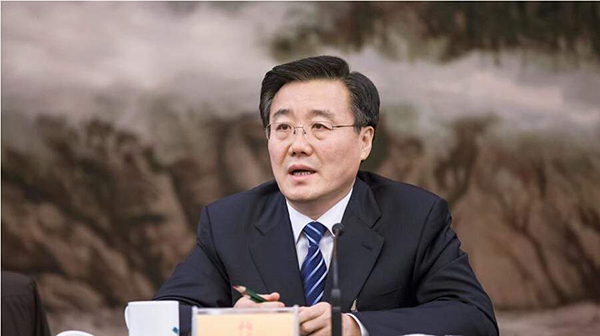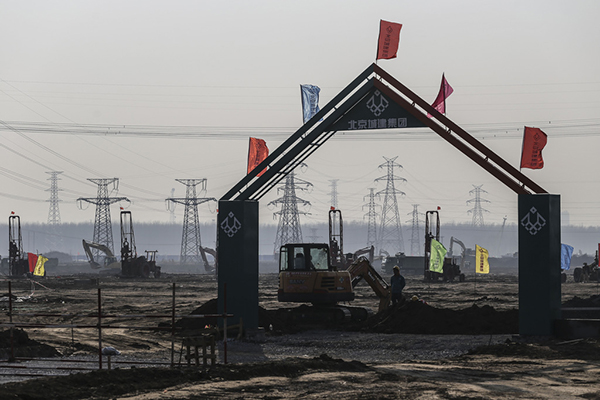Beijing gov't to move from city's crowded downtown at the end of next year
People's Daily Online, March 8, 2016 Adjust font size:
 |
| Li Shixiang, deputy mayor of Beijing |
At the end of 2017, Beijing will move its municipal administrative bodies to the eastern Tongzhou district, where a Beijing administrative sub-center is currently under construction. The move is a measure to ease pressure on public services, said Li Shixiang, deputy mayor of the capital on Monday.
As a consequence, 400,000 people will move out of overcrowded downtown areas, Li told reporters at the ongoing Two Sessions meetings on March 7.
At the same time, Beijing is planning three new towns, Daxing, Shunyi and Changping, which will offer a solution to the population burden of the city in accordance with the new urbanization plan.
In order to curb the rapid growth of the city's population, Beijing will make an effort to control property development, which will remain static over a period of time to come. "Controlling the development of real estate is controlling population growth,” said Li.

Beijing has 21.72 million residents and 5.62 million vehicles, with the average congestion index reaching 5.7. A true solution for congestion will ease the non-capital functions and promote coordinated development of Jing-Jin-Ji, which is a mega-city named after the three areas it encompasses: Jing for Beijing, Jin for the nearby port city of Tianjin, and Ji for the traditional name of Hebei province, which surrounds both cities.
Li also mentioned that 20 wholesale markets and 79 industrial enterprises already moved from Beijing last year to reduce traffic congestion and population density.